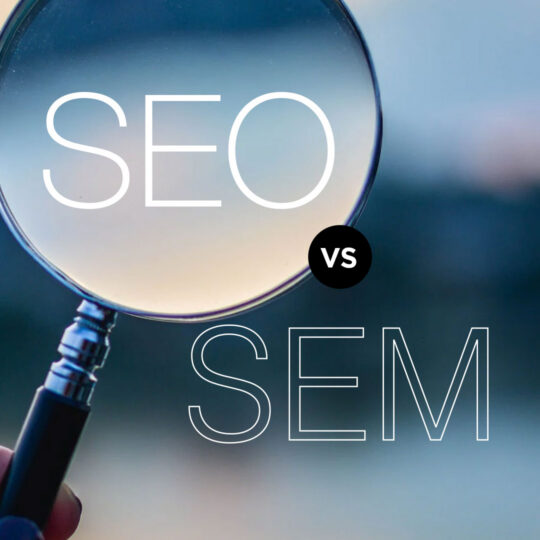In the ever-shifting realm of digital marketing, there are two buzzwords that often get tangled up – SEM (Search Engine Marketing) and SEO (Search Engine Optimization). It’s a common mix-up, but these are actually two different animals with unique strategies and goals. Let’s dive into the world of SEM and SEO and clarify what sets them apart, so you can use each effectively.
1. Point of View
The first biggie to differentiate SEM from SEO is their point of view. SEO, or Search Engine Optimization, is all about the organic stuff. It’s all about making your website pop up in those unpaid, natural search results on search engines. SEO wizards are like the wizards behind the curtain, tinkering with your website content, meta tags, and backlinks to boost your site’s ranking. SEO loves to keep it third-person, focusing on objectivity and neutrality.
Now, SEM, or Search Engine Marketing, takes a more direct approach. SEM is the paid advertising game on search engines, often through platforms like Google Ads. With SEM, marketers roll up their sleeves and bid on keywords related to their products or services, getting their ads right up there in the search engine results. SEM’s first-person approach underscores that active role of advertisers in reaching potential customers.
2. Voice or Tone
Here’s where things get a bit different in the way SEM and SEO talk. SEO content is like that friendly chat over a cup of coffee – informal, casual, and conversational. It aims to connect with the audience personally, dishing out valuable info while showing off the brand’s personality and goals. You’ll typically find SEO content on a website’s blog or those helpful information pages.
In the world of SEM, it’s all business. SEM adopts a formal, professional, and persuasive tone. Those ads have a job to do – convince users to click on them and take action right away. It’s all about short-term results, not the long-term relationships.
3. Where They Play
Another key difference is where you’ll spot SEM and SEO in action. SEO is all about improving your website’s organic search ranking. It’s like giving your website a makeover for better visibility in search results. Most of the SEO action happens right on your website, with content optimization scattered throughout.
But SEM goes beyond your website. Yes, SEM ads can show up on your website, but they also venture out into the wild – appearing in search engine results, partner websites, even newspapers and magazines. It’s like SEM has a broader stage for immediate visibility.
4. The Keyword Factor
Keywords are the heartbeat of both SEM and SEO, but they’re used a bit differently. SEO gurus are all about naturally weaving those relevant keywords into website content and meta descriptions. It’s like a puzzle – matching what users are searching for with what’s on your site.
Now, in SEM, keywords are gold. Marketers bid on specific keywords to make sure their ads show up in relevant search results. It’s a competitive keyword showdown, demanding strategic thinking to secure that ad placement.
5. Paid vs. Organic
The most fundamental difference between SEM and SEO is the distinction between paid and organic results. SEM involves paid advertising, where advertisers pay for each click (Pay-Per-Click or PPC) on their ads. In contrast, SEO is organic and aims to improve a website’s visibility without direct payments to search engines
6. Measuring Success
How you measure success is another tale of two stories in SEM and SEO. SEM success is all about metrics like click-through rates (CTR), conversion rates, and return on investment (ROI) from ad spend. It’s all about quick feedback on how well your SEM campaign is doing.
SEO success, on the other hand, is measured through organic traffic growth, keyword ranking improvements, and user engagement metrics. SEO’s more of a slow burn, with success metrics reflecting the gradual boost in your website’s visibility and authority.
To wrap it up, SEM and SEO both aim to boost your online presence, but they have different tricks up their sleeves. Understanding these differences is your key to making savvy choices in your digital marketing strategy. Depending on your goals, budget, and timeline, you might go all-in on SEM, stick to the SEO path, or mix them up for a killer combo.
